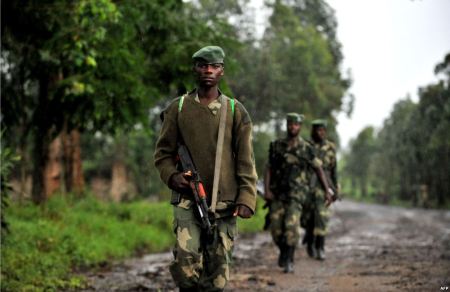Animosity, hatred and revenge have long existed between Hutus and Tutsis. The most violent manifestation of this relationship was the 1994 Rwanda genocide and its repercussions are still apparent today. Rwanda suffers as a result of this division even now but it has also been an important part of the multifaceted problems in Congo.
It is difficult to keep abreast of all that is happening in Congo. It is not only a highly unstable situation, it is also a constantly changing one. Religious, territorial, tribal and historical allegiances are fluid and are exacerbated by moves to control economically profitable areas, as well as the political balance of power. In the past 18 months, one key event has been the insurgency in eastern Congo by the M23 rebel group. This group is majority Tutsi and part of their motivation is revenge for the 800,000 Tutsis killed by Hutus in 1994. This M23 rebellion in eastern Congo has been strong and significant. As a result, the UN peacekeeping mission, MONUSCO, which has been in place since 2010, has been closely monitoring the situation. What they have discovered is, seemingly, the confirmation of long-held expert opinion – that the Rwandan government is supporting the M23 rebel group.
Although a claim strongly denied by the Rwandan government, interviews with child soldiers aged between 11 and 17 who have escaped from the M23 rebel group, confirm this position. Of 117 boys discovered, 37 were found to be Rwandan. What is more, on being interviewed, these children have revealed that, not only were they lured to join the M23 rebels with the promises of cash, jobs and education, but that they were trained by the Rwanda Defence Force. At Rwandan military camps in Bigogwe, Ruhengeri-Nyarubanda and Mundende they were given “very, very sophisticated training, very serious training” by Rwandan officers, according to Dee Brillenberg Wurth, MONUSCO’s chief of child protection. Indeed, some of the children believed they were being trained for the Rwandan army before being sent off to fight for M23.
The life of a child soldier is brutal and harrowing. Innocence is robbed and death is a constant in their lives, whether this is the death of friends or the killing these children have to perform themselves. There has been huge progress made on the issue of child soldiers in the Congo, and the US last week partially blocked military aid to Congo over this exact issue. However, it is still being facilitated by elements in our world. This recent example is yet another reminder of two important considerations. That just because a major conflict ends, in this case the Rwandan genocide of 1994, it does not mean that the underlying issues have disappeared and that that place can be now forgotten and abandoned again by the world. And that in conflicts of this nature, where tribal, age-old hatreds abound, there is no “good” and “bad” side, there is mutual culpability, so we must be careful to not too easily take support and chastise one or the other.
(Like Old Bushel Britches on Facebook and Follow on Twitter)
OBB x



